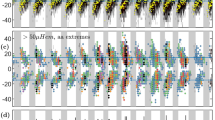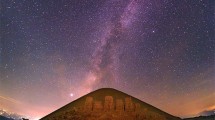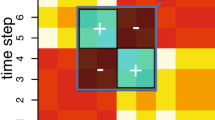Abstract
IT would seem that in the dawn of civilization it was not at all a matter of course that the sun should be taken as the measurer of time, as it is now with us; and in this connection it is worth while to note how very various the treatment of this subject was among the early peoples. Thus, for instance, it was different in Egypt from what it was in Chaldæa and Babylonia, and later among the Jews. In the Egyptian inscriptions we find references to the moon, but they prove that she occupied quite a subordinate position to the sun; while in Chaldæa it would seem that the moon was the chief thing worshipped, and it was thus naturally the chief means used for measuring time, and, 5o far as months were concerned, this, of course, was quite right. In Chaldæa, too, where much desert travel had to be undertaken at night, the movement of the moon would be naturally watched with great care.
This is a preview of subscription content, access via your institution
Access options
Subscribe to this journal
Receive 51 print issues and online access
$199.00 per year
only $3.90 per issue
Buy this article
- Purchase on Springer Link
- Instant access to full article PDF
Prices may be subject to local taxes which are calculated during checkout
Similar content being viewed by others
References
"Chronologic," i. p. 70.
"Studien zur Geschichte des alten Aegypten", i. p. 16.
Loc.cit.,p.20.
Mommsen, "Chronologic," p. 258.
Rights and permissions
About this article
Cite this article
LOCKYER, J. The Origin of the Year: I. Nature 45, 487–490 (1892). https://doi.org/10.1038/045487d0
Issue Date:
DOI: https://doi.org/10.1038/045487d0
Comments
By submitting a comment you agree to abide by our Terms and Community Guidelines. If you find something abusive or that does not comply with our terms or guidelines please flag it as inappropriate.



